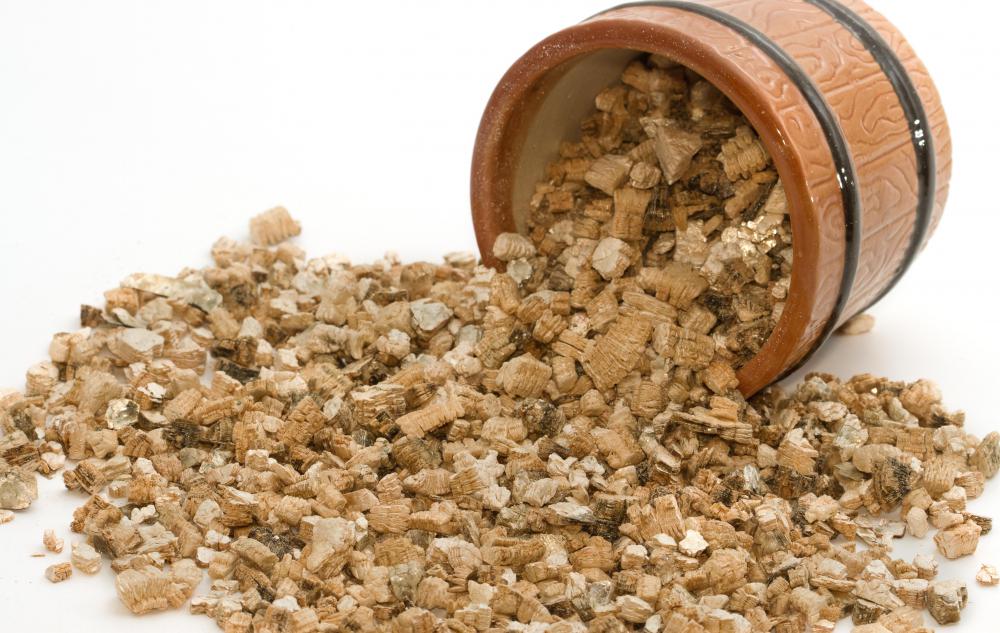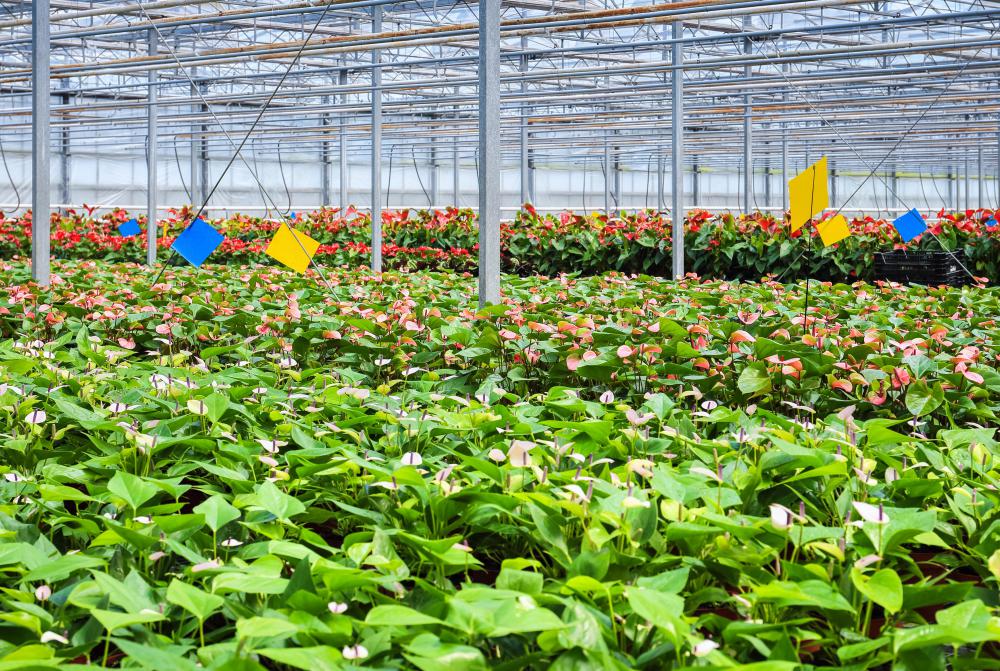At HomeQuestionsAnswered, we're committed to delivering accurate, trustworthy information. Our expert-authored content is rigorously fact-checked and sourced from credible authorities. Discover how we uphold the highest standards in providing you with reliable knowledge.
What Is the Difference between Vermiculite and Perlite?
Vermiculite and perlite are inorganic, mineral-based materials used in horticulture. Vermiculite is comprised of naturally occurring minerals. Perlite is siliceous rock, a naturally occurring type of volcanic glass. Added to soil and soil mixes, vermiculite and perlite provide structure and improved drainage.
Vermiculite is a naturally occurring group of hydrated laminar minerals, called hydrated magnesium aluminum silicates. The minerals are heated at high temperatures during processing, causing them to expand. Vermiculite has a neutral pH of 7.0. The light-weight material holds nutrients, air and moisture while providing good drainage.

Perlite, on the other hand, is siliceous volcanic glass. The volcanic glass is created when magma cools quickly. When the perlite is heated at high temperatures during processing, the material expands from four to 20 times its volume. The expanded, crushed rock material is commonly used in potting mixes and soils, provides good aeration around plant roots, holds nutrients and moisture, and drains well. Perlite, like vermiculite, has a neutral pH.

Vermiculite and perlite serve similar functions in horticultural applications. Soil, compost, and other organic potting materials break down over time, releasing important nutrients. Vermiculite and perlite do not break down, however. Using one of these materials in combination with organic potting mixes creates space between the soil particles. The plants, then, get the nutrients they need from the organic material and good drainage and air circulation from the inorganic material.

Most garden soil is not well suited for growing plants in containers, as it generally is too heavy for container growing. As it compacts, the plant roots are starved of oxygen, moisture and nutrients. A good, light-weight potting soil can be created by combining loamy garden soil, vermiculite or perlite, compost and peat moss in equal parts.
When starting seeds indoors, or rooting cuttings, a sterile environment is important. Microbes in organic materials, such as potting soil, compost or garden soil, can cause seeds and cuttings to rot before they germinate or form roots. A soilless mix can be made by combining equal parts vermiculite or perlite with coarse sand and peat moss.

Unlike organic materials, vermiculite and perlite do not contain nutrients. When starting seeds in one of these inorganic materials, fertilizers should be applied soon after the seedlings emerge. The seeds provide nutrients for for the first stages of growth, but the developing plants need additional nutrients as the nutrients in the seed are exhausted.
AS FEATURED ON:
AS FEATURED ON:














Discuss this Article
Post your comments